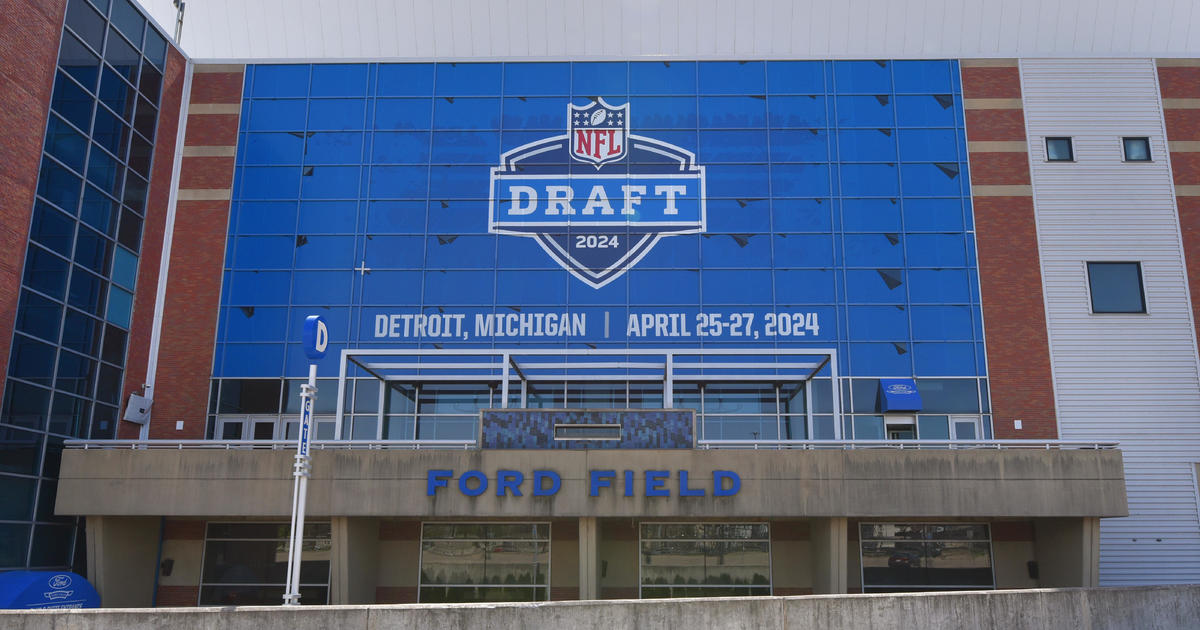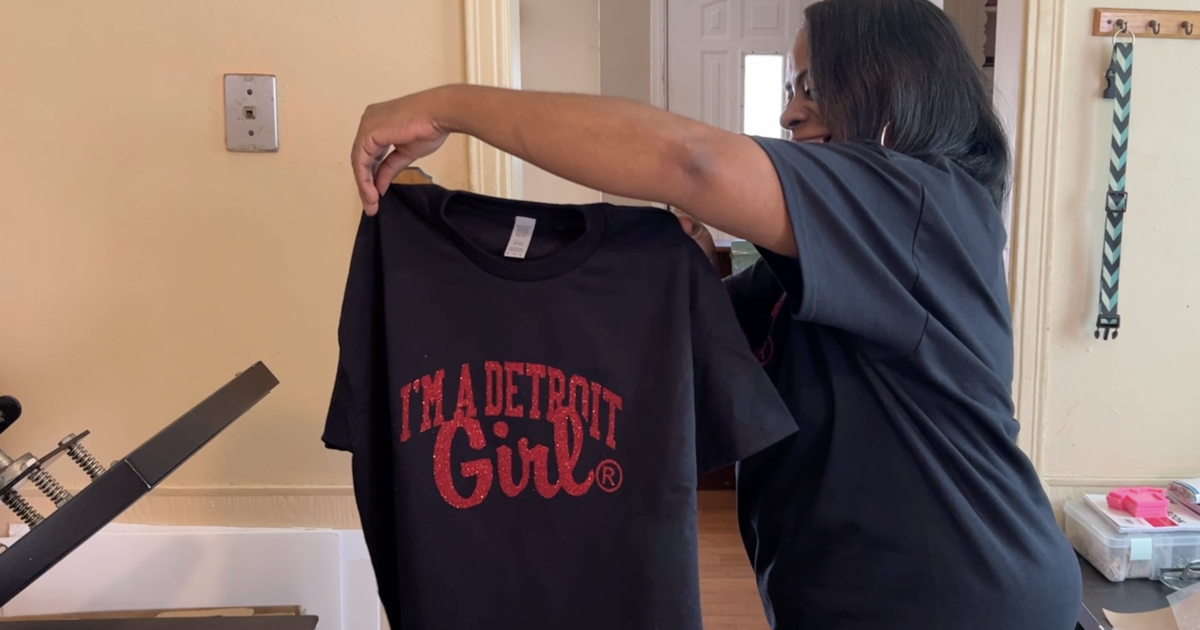Techonomy Says Tech Startups Mean Better Future For Detroit
DETROIT (WWJ) -- An overflow crowd packed the 600-seat Community Arts Auditorium at Wayne State University to hear about how high tech can accelerate the recovery of Detroit.
The second annual Techonomy Detroit conference featured an informal conversation between David Kirkpatrick of Techonomy Media, and Michigan Gov. Gov. Rick Snyder. And when it comes to the tech recovery in Detroit, Snyder noted that the "comeback in Detroit started several years ago, outside of municipal government, outside of the public sector ... The comeback is going on in spite of the way government was operating."
Given a better-run and more efficient Detroit city government on the horizon, Snyder said, "think of the possibilities now."
Already, Snyder said, the total investment of people like Quicken Loans founder Dan Gilbert in downtown and midtown Detroit has b een $10 billion in recent years, with 12,000 new jobs created.
Obviously, however, significant challenges remain in the city's redevelopment. Kirkpatrick challenged Snyder and officials to "connect the dots." Kirkpatrick called the city a place where vibrant areas are separated by blocks of burned-out buildings: "Corktown, a cool neighborhood, but take three steps outside it and it's like you're in outer space."
Earlier, a panel discussion on education argued that while STEM education -- science, technology, engineering and mathematics -- is critical, the humanities can't be neglected either, because people need to learn how to think critically and holistically.
And in a panel on Detroit's redevelopment, Bruce Katz of the Brookings Institution advised Detroiters that "most states spend their money like peanut butter, spread across the whole state equally. Don't. Concentrate on downtown and midtown Detroit. It's how you build a vibrant metropolis."
And the aforementioned Gilbert urged the city to level all blighted structures as quickly as possible.
"I think once all those blighted buildings are gone -- not some of them, not most of them, but all of them -- with the utilities in place, I think it will amaze you how quickly these areas redevelop," Gilbert said.
On other topics, Snyder said the state's Educational Action Authority "is not intended to be a massive school district across the state. Hopefully it will be a place of innovation." He said when it comes to education, "open source student centered learning is really what it should evolve into."
And when it comes to Detroit, Snyder said, he's following the Detroit City Future Plan. "It's not like we're starting from scratch," Snyder said. "I have a big book on my desk at Cadillac Place, and when somebody asks what we're doing in Detroit, I show them the book and say, 'This is what Detroiters decided was a really good idea.'"
Snyder added that Michigan has long been a high tech state thanks to the auto industry: "People think of autos as something separate from technology. That's a false premise. We need to get people over that. People think of autos as the model T assembly line."
Snyder said the future of the auto industry is smart, connected vehicles -- and Michigan is hosting the 2014 world congress of the Intelligent Transportation Society next September.
Snyder also argued for liberal immigration policies, saying it's "really dumb" that Michigan gives thousands of foreign students a fine education, "and then we tell them to get out... we should be asking them, 'Would you like an opportunity here?'"
In a question and answer session with reporters after his talk, Snyder said he's seeing an improvement in relations between Detroit and outstate Michigan, and that he doesn't think Detroit will need a post-bankruptcy bailout -- at least not in the traditional, big-bucks sense of the word bailout.
In a later panel on finding jobs for Detroiters, Felix Ortiz, founder of Viridis Learning Inc., talked about his startup's technology, which captures data on users taking various courses, then uses algorithms to match them with suitable employers.
Detroit News editorial writer Nolan Finley also said many employers are desperate to find people in the skilled trades, such as welding. Finley said he had one such employer in his office who told him he would pay welders $80,000 to $100,000 a year. "I almost lost two writers," Finley said.
And a staffer with the House of Representatives Committee on Foreign Affairs said she was optimistic about the future of American competitiveness and manufacturing.
"I think we have a lot of advantages here in the U.S.," said Nilmini Rubin, adding that the nation has much potential to boost exports to the 95 percent of the Earth's population that lives outside the U.S. Exports are currently at 17 percent of GDP -- even with Rwanda and Tadjikistan -- while Germany is at 52 percent, she said. And only one in 100 American companies today exports, she adde.d
A later panel on startups also expressed optimism, with a surge of interest among young people in launching their own companies.
Andrew Yang of Venture for America encouraged them to staying at it, saying his first startup was "something of a dud ... my investors can certainly attest to its dud-like status."
"Of course I'm biased, but I think Detroit is the most fertile ground" for entrepreneurship in the nation, according to Josh Linkner of Detroit Venture Partners. "We have access to capital, we have talent in spades, we have low cost resources. We just lack connections between some of these things."
And when it comes to Detroit, Linkner said, "the ultimate contrarian act is to take the left traveled path, and to me that's what the story of Detroit is. In Detroit you really get to leave your fingerprints on a great American city."
And Jocelyn Benson, dean of the Wayne State University Law School, noted that "Detroit is on the right trajectory in large part because of the support and investment of our entrepreneurial community."
Later, in a discussion on manufacturing with Rodney Brooks of Rethink Robotics, Brooks urged the crowd to rethink manufacturing machinery.
"Do any of you have one of these complex devices?" Brooks asked, holding up a smartphone. "Did any of you go take a course at a community college to learn how to use it? No. It's designed on some precedents that are common to the culture, it is designed so that you can learn to use it yourself. We in manufacturing like to pride ourselves on how complicated our machines are, so we made them too hard to use."
Brooks said that manufacturing equipment needs to be as "plug and play" as electronics are.
One example: robots used to find bombs in Iraq that soldiers found useless until the Pentagon put a game-like controller on them.
"You need to follow cultural references," Brooks said.
And in a late-afternoon session, representatives of the "maker" movement -- a technology-based extension of do-it-yourself culture -- described how makers just might help save Detroit.
Chad Dickerson, CEO of Etsy, the New York-based e-commerce site focused on handmade items, said one of his favorite films is Charlie Chaplin's "Modern Times," which he said "shows man being crushed by machines. The maker movement represents man taking over the machines again." It's also a way to learn from makers globally, not just in your community.
K. Venkatesh Prasad, senior leader for open innovation at Ford Research and Innovation, noted that "it's a fascinating time where we're at right now where the tools of innovation have been so democratized again. Prasad said the Internet began democratizing information and ideas 20 years ago, and now the maker movement is "tangibles being democratized."
Prasad said many auto parts are exempt from competition from makers with 3-D printers for very valid reasons of safety regulation. But he said the automotive aftermarket "is a $300 billion business, and we know how to work with makers in the aftermarket -- it's a happy world and getting happier."
Dickerson referenced economist E.F. Schumacher's 1972 book on small business, "Small Is Beautiful," which held that the technology that is morally good is technology that does not stifle creativity or expression. "I believe in a brighter future based on this kind of technology."
But he said some technology that originally was viewed as evil becomes commonly accepted.
"A lot of people on Etsy sell things they make on sewing machines, but when sewing machines were introduced there were riots -- the tailors thought they would be put out of work," Dickerson said. "But now if I tried to ban sewing machines from Etsy, I could create a riot."
Marleen Vogelaar, chief strategy officer and co-founder of the e-commerce site Shapeways, said her site has allowed 11,000 members of its marketplace to become entrepreneurs.
And Matt Clayson, director of the Detroit Creative Corridor Center, said makers are not just making one-offs, but items "that can be replicated, mass produced." He said in a world of increasing scarcity, makers are known for wise use of limited resources.
And next up for makers? A maker market for food, people carefully growing and selling their own craft food and sharing best practices with the same sense of community and connection that characterizes maker culture.



